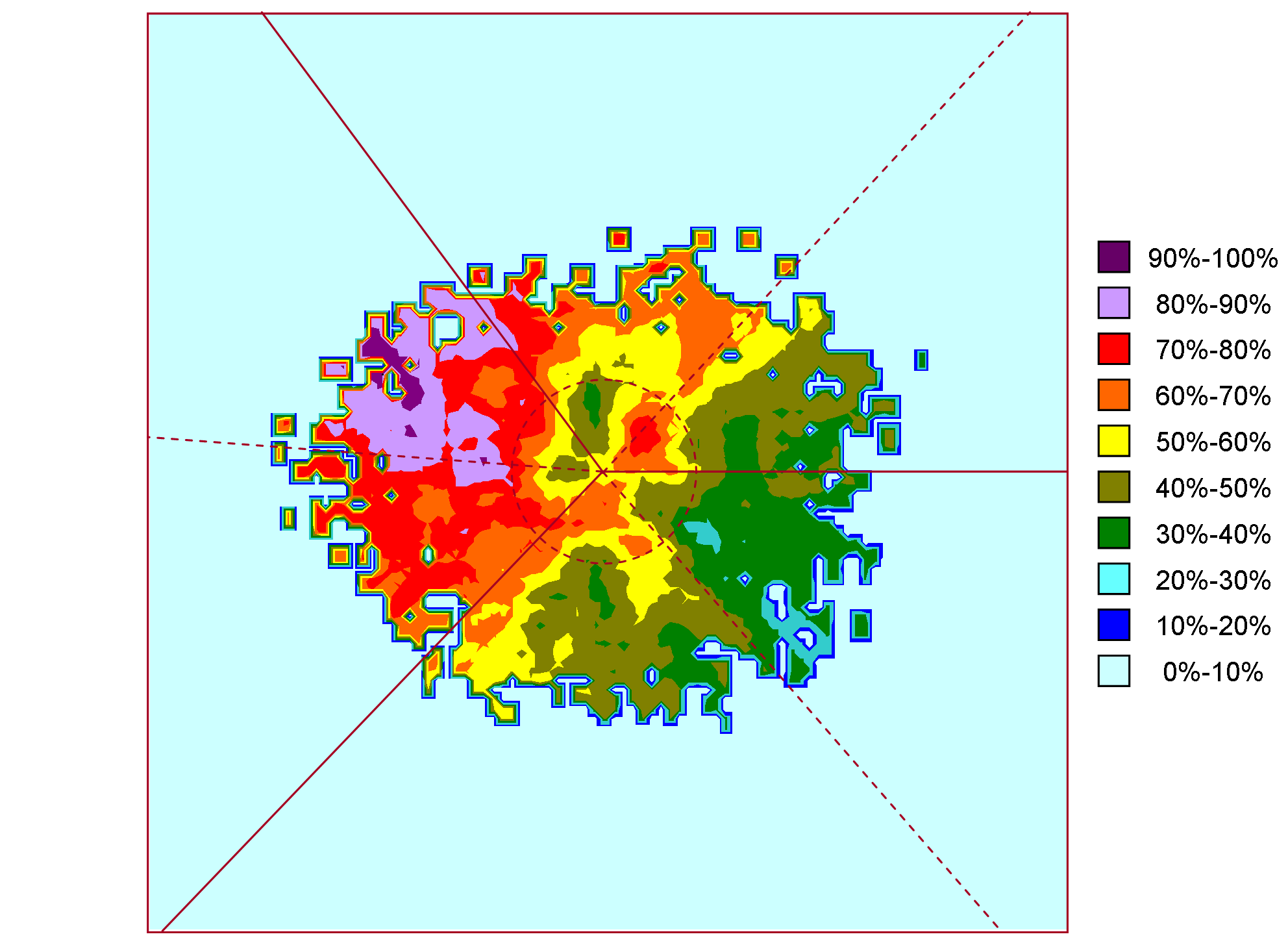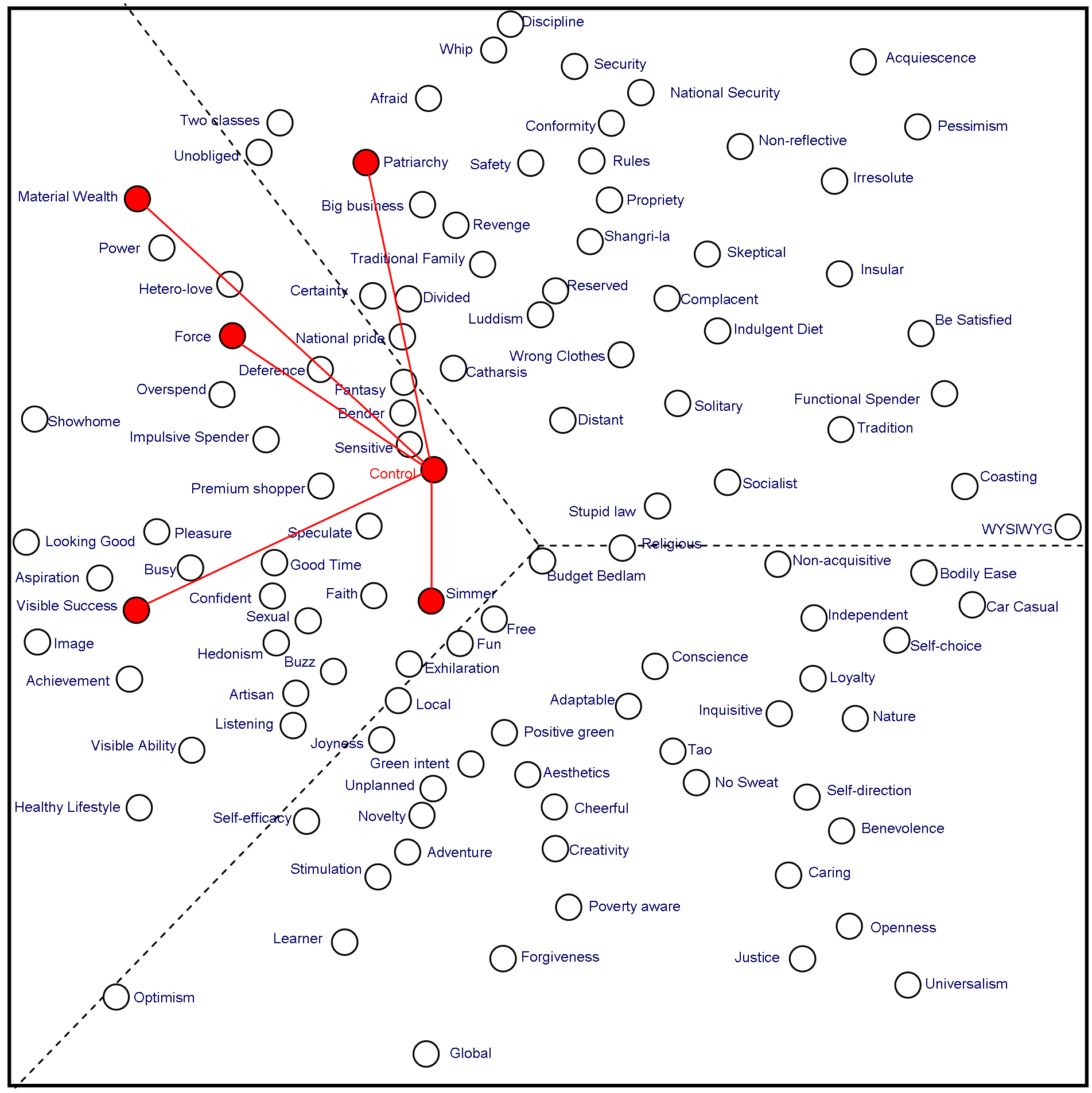

CONTROL
 |
It is important to me to be in charge and tell others what to do. I want people to do what I tell them.
It should come as no surprise that this Attribute is over-indexed among the AB social class, people who have managerial or leadership positions. It is most pronounced among men in the 22 to 44 year age band. These espousers are more likely to be desirous of management positions in their workplaces than those people (most likely Pioneers) who do not attach as much importance to controlling others’ behaviours.
This values set can be seen as a firm hand on the tiller – they know what they want and are eager to take control. If their team goes along in their direction, all is well and good. However, if they don’t get their way, don’t expect a kindly hand on the tiller explaining why their way is the ‘best way’. It is more likely that other, more forceful methods of persuasion will be used by Control espousers.
The most important thing for them is to get what they want, even if physical means have to be used. This is usually not acceptable to others and can lead to charges of bullying or intimidation in the modern workplace. In family groups and among small groups of ‘friends’ this can lead to physical violence. Control espousers will know it ‘isn’t right’, but they will have many rationalisations for their behaviours. Rather than accept responsibility for their actions, they are likely to blame others.
They are driven by the need to acquire material wealth. They want lots of money, to have expensive things. This Attribute is a big factor in the accumulation of wealth. Once they’ve acquired something they just want more. They never have enough. There is always someone who has more.
They are the people who believe they are entitled to great riches. They feel they have achieved what they deserved. This sense of entitlement creates a mind set that leads them to believe they have no responsibilities to those with less achievements and acquisitions than themselves. They will not be big supporters of the idea of a welfare state that protects the vulnerable in times of need. They believe that those who have misfortunes in life are largely responsible for their own troubles – just as they themselves are responsible for their own wealth and achievements.
Entitlement can hinge on nothing more than the fact that they are male. Taking the view that men are superior to women, they can be seen by others as jerks, old-fashioned, or just sexist in their attitudes in the workplace or among groups of peers. To Control espousers, however, the world is red in tooth and claw, and life a constant power struggle. Winning in these subconscious wars is important to them. Losing is fraught with loss of identity as a man, not just a setback in a ‘game’.
Their genderised world view is shared by the women who espouse this Attribute. They don’t want a caring, sharing man. They want a man who is in charge, who knows who he is, and is rich. They want to acquire wealth as well and will see their place less in the boardroom than in the bedroom – or at least in the home - where they are most likely to be in charge, telling others what to do and being quite forceful and relatively unsympathetic in the delivery of their orders. After all, if people don’t like being told what to do they are free to leave.
The Control Attribute is one of driving forces in the modern workplace, and can lead to great accomplishments and rewards. But it also has a dark side – the bending of a few too many rules. This can lead to dysfunctional organisations and cultures. The financial collapse of 2008 can be ascribed to this value-set.
Using ControlDemographic Skews: 1) Over-indexed: Male, 22-44, up-market 2) Under-indexed: Female, over 45, down-market Control espousers also espouse other Attributes. The top five most highly correlated Attributes of Control espousers are, in order of the strength of relationship: 1) Material Wealth In total those who espouse Control also over-index significantly on 37 other Attributes. |
|
If "Control" (or the associated attributes) are important to you and you would like to delve more deeply, contact us at mail@cultdyn.co.uk
